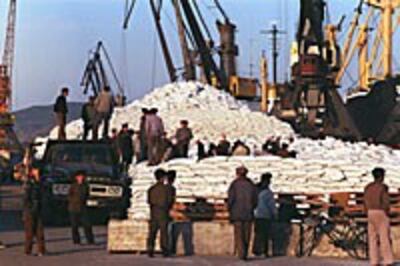
SEOUL—North Korea will let the U.N. World Food Program (WFP) back into Chagang Province to distribute food aid, six months after Pyongyang closed the northern region off to international assistance, the WFP says.
Chagang Province, along the country's northern border with China, had been blocked off to the world aid organization since October 2004. Seven previously accessible counties would be affected.
"The seven counties in Chagang are now again accessible to us," Richard Ragan, WFP's Pyongyang representative, told RFA's Korean service in an interview broadcast March 8. "It was the end of last week, we were advised that distributions could resume and it was open for business."
WFP officials want to return to the area "obviously as soon as possible," Ragan said.
No reason given
"Since they have been without for almost three months, it is very important to resume as quickly as possible, but I can't give you a specific day or date. We've sent a team of monitors up from Pyongyang on Monday [March 7] to do an assessment."
The seven counties in Chagang are now again accessible to us... It was the end of last week, we were advised that distributions could resume and it was open for business.
Pyongyang has given no indication of the reasons behind its decision to reopen Chagang Province, he said.
The entire country has suffered severe food shortages since the mid-1990s, after the Soviet Union collapsed and communist-bloc subsidies dried up. Poor harvests and bad weather worsened the food deficit.
Up to 1 million North Koreans are believed to have died of hunger since then, and the country has relied heavily on food donations procured through international organizations including the WFP.
On Monday, the WFP and UNICEF said North Korea would require international food aid for the foreseeable future despite improvements in the nutritional health of its 23 million people.
The proportion of young children chronically malnourished fell from 42 percent in 2002 to 37 percent in 2004, with acute malnutrition falling from 9 percent to 7 percent, the report said. WFP provides food aid to 6.5 million North Koreans in its largest aid program.
